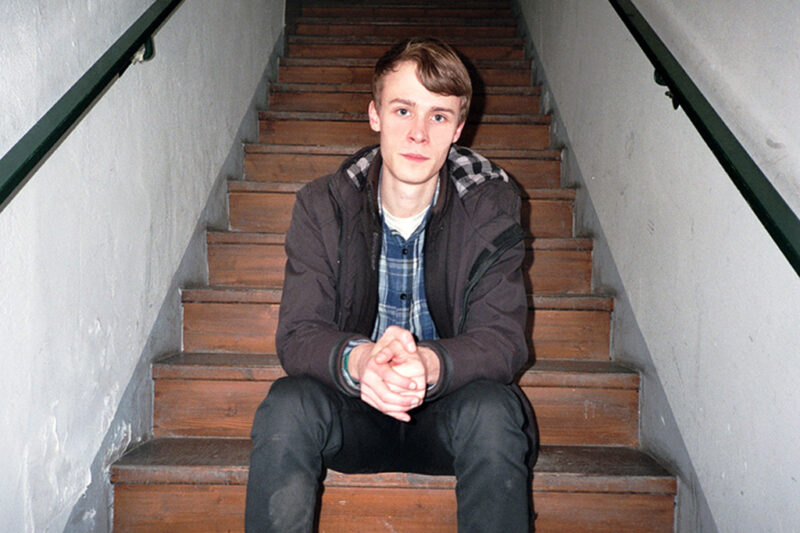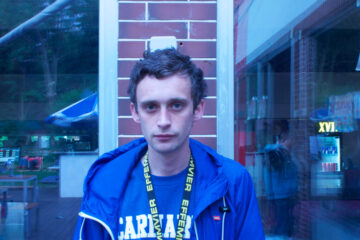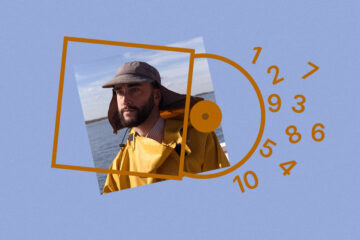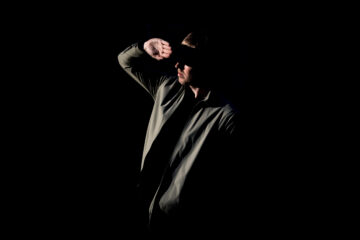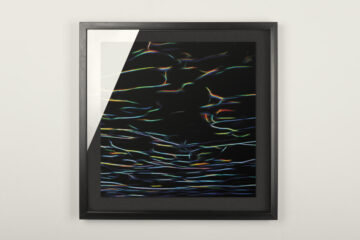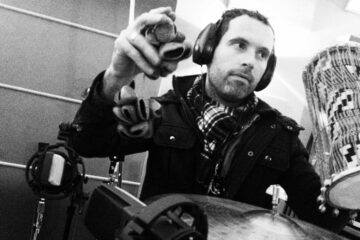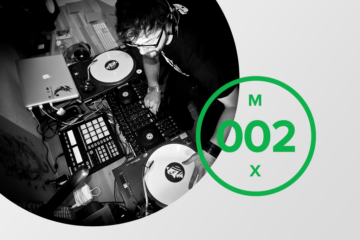Pariah just started messing around with his computer 2 years ago. After getting serious about production he didn’t have to wait long for his first release on the legendary R&S label. The London based producer got massive attention when his single Detroit Falls dropped. Making heads turn he soon became another wunderkind in the electronic music scene, only being 20 years old. Since then he is asked to play records all around. Valentin Menedetter caught up with the today 21 year old in Vienna.
When did you actually start making music?
Pariah: I’d say it’s pretty much exactly two years ago. I got a Mac Book maybe 3 years ago and I was messing around, but not really making anything. Then I made Detroit Falls, and that was actually one of the first proper things that I finished. Then I made Orpheus and that was the second thing that I finished. And then, after that I didn’t do anything for about 5 months. But I’d say two years ago is when I first started making music.
You said that you were fooling around with the program and everything when you got the Mac Book – so could you ever imagine being a performing and eventually releasing artist?
Pariah: I’m not really sure, when I was 16 there was a computer in my school that had Logic on it. So me and a friend in the odd afternoon, used to go and mess about. We didn’t really know what we were doing. It was the same thing when I got the Mac Book, I got Logic and it was kind of the same thing; I was messing about. And then I kind of sat down and tried to write tracks. But after I knew the basics I guess. But still I was very lucky: I mean those two tracks, Detroit Falls and Orpheus, they were made two days between each other when I was really ill and I honestly didn’t really know what I was doing essentially in terms of all the sounds that I found I was kind of very lucky. Detroit Falls is me trying to get that side chain compression – sounds that a lot of the Hip hop stuff has. I didn’t know what to do, I didn’t know that it was a certain kind of compression that you did that made it happen. It was only 6 months later that I found out, »Oh, that’s how you do it«, and that was just me trying to make the sound myself just by messing around with Synths rather than using a compressor or something like that.
It was a good idea that happened by accident.»I mean those two tracks, Detroit Falls and Orpheus, they were made two days between each other when I was really ill and I honestly didn’t really know what I was doing.«
Pariah
Pariah: Yeah definitely, it was a happy accident and luck, really. It’s good that it turned out like this.
Did you have any professional training in music before?
Pariah: I wouldn’t necessarily say professional training but I used to play the piano. I’m starting to learn properly again, and I’ve played guitar for about 8 years, but it was never professional it was more like a hobby. It was something that I enjoyed doing.
Once you finished university you’ll have a free head for music and art. Are you working on something at the moment?
Pariah: I just started working on an album. But I’ve only got one track together. I’ve got some ideas. Trying to get a clear idea of what I want it to sound like. I mean, it’s not going to be a dance record at all. Maybe there will be a couple of tracks that people might play out but the focus will not be club music. It will be a home listening record; I want it to have a proper structure not be too long, 40 minutes long. Not too many tracks, maybe 10 tracks maximum. It should have a strong narrative to it. Cause I think a lot of albums by dance music artists don’t work as an album. They’re a collection of tracks for Djs rather than a collection of tracks for listeners and for me; I much rather care that people listen to my music than play it out. It’s never been much of my concern if someone is playing my music out, I don’t want to sound ungrateful to the people that do, I’m flattered by people who are playing my music and it really means a lot but at the same time for me it’s people listening to it at home – especially with the newer stuff. Hopefully I’ll be able to do it.
When I listen to what you’re saying, it reminds me of James Blake it reminds me on James Black: He did Dubstep records, stuff that did get played out in the club and now he came out with his album which is something totally different. More like a home listening album than anything else. Can you actually relate to that?
Pariah: Yeah I mean, that’s always what James’s album was going to sound like. When I first heard his tracks I knew that this is what the album would have sounded like. I mean I’m not trying to relate to him in the sense of »I want to make an album like that«, cause he has just gone and written an album that actually has a narrative to it that actually has some kind of structure to it and that’s just like for everything outside of electronic music or everything outside of dance music. That’s a completely normal thing. Dance music is often stuck in the thought that it has to be 10 tracks that are just bangers. I can’t listen to an album like that. There may be a handful that I can but the large majority is not. I just like to approach it as a concise piece of music. But I can see the whole thing with James’s album. For me it’s the first album since Burial’s Untrue from this scene that has worked and Mount Kimbie that has worked as well. You can sit down and listen to the whole thing all the way through.

